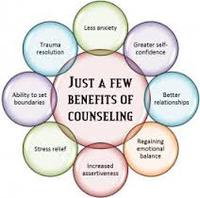Articles » New Beginnings » What is Counselling?

What is counselling and how can it be beneficial?
Written by Shelley Hutchinson on 24 January, 2014
Many clients who come to counselling for the first time have very little understanding of what counselling is.
Even though there is a lot of information available on counselling, it can be hard for a person new to counselling to understand.
This article aims to simply explain what counselling is and how it can be beneficial.
What is counselling?
Counselling is a process where an individual is supported by a professional counsellor to gain more understanding about themselves. Depending on the type of therapy the counsellor is trained in, the focus will be on exploring the individual’s thoughts, feelings, sensations and/or spirit.
What makes counselling different from simply having a chat with a friend is that the counsellor is focused on you & your needs, and does not interrupt you to talk about themselves. People tend to find that their experience of being listened to by their counsellor is deeper and more profound then their experience of being heard by others in their lives.
One of the most important things about counselling is that it is a relationship. No two experiences of counselling will ever be the same. This is because the relationship a counsellor and client form is unique to them. Research has shown that it is the relationship between a client and their counsellor that often determines the successful outcome of therapy.
People can go for counselling on their own or with their partner or with their family member(s). Counsellors work with adults, adolescents, children, couples and/or families. Counsellors might work with one or more of these client groups.
Misconceptions of counselling
Some people think you have to be feeling “very bad” to attend counselling. However, counselling is not just for people with serious mental health issues. Most clients who come to counselling for the first time do so because they are experiencing pain in their lives and they are not sure how to handle it.
This pain might originate from a particular life event such as a bereavement, abuse, health issue or relationship breakdown or could relate more generally to an inability to cope with their thoughts or feelings. It can be useful to realise that all of us will experience pain in our lives from time to time because we all face challenges such as; growing older, experiencing death, changes in our relationships and health difficulties. So it is completely natural that at some point we might need professional counselling to help us through these experiences and our feelings of pain.
Another popular misconception of therapy is that counsellors can “fix” people. It is easy to understand where this misconception comes from. When we are ill we go to a doctor and are prescribed a medicine that makes us well again, however, therapy works differently to this. Counsellors do not “fix” clients, rather they support clients to enquire into the experience or situation which is causing them pain in their lives and to find their own solutions so they can feel happier and more fulfilled.
Benefits of Counselling
The benefits that an individual, couple or family might experience from counselling vary greatly depending on; the person or persons attending, the issue they attend counselling to address, their relationship with their therapist, the type of therapy they have and the length of time they have therapy for.
Shorter term therapy (6 to 8 sessions) tends to be beneficial for alleviating pain in relation to a very focused problem or issue. Longer term therapy (6 months or more) can often lead to a deeper exploration of the person’s issue and longer lasting change where a person can come into an entirely new way of relating to themselves and others.
No matter how few or how many counselling sessions a person has, these sessions can set them on a new path – one that can lead them to experience profound change and greater self-love & self worth.
This article was published in the Evening Echo on Wednesday 22nd January 2014
